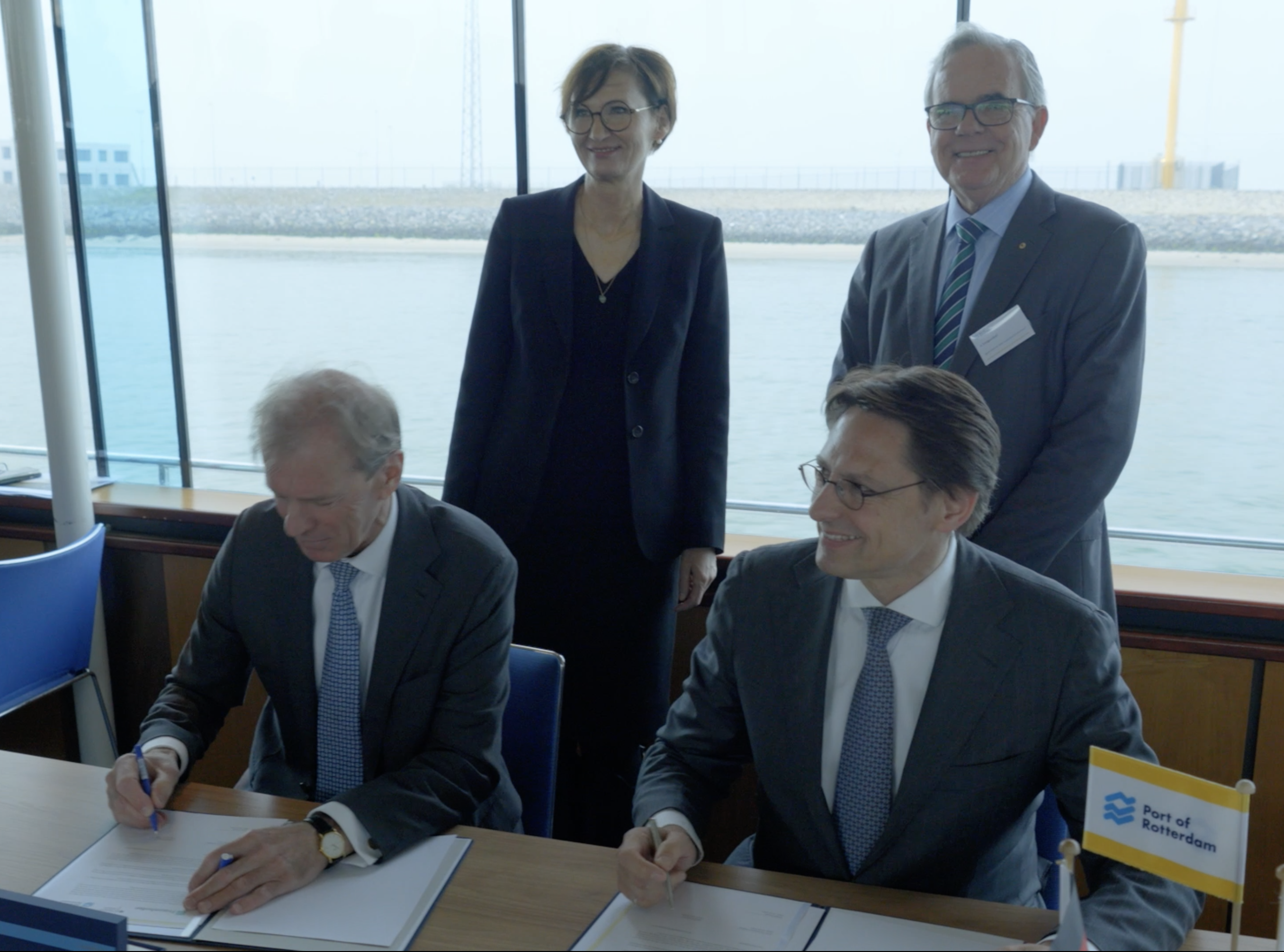News #7
Hydrogen from Australia to Germany via Rotterdam: Fraunhofer ISE and Port of Rotterdam Jointly Sign Letter of Intent
In the presence of the German Federal Minister of Education and Research, Bettina Stark-Watzinger, a delegation from Germany's Fraunhofer Institute for Solar Energy Systems ISE and the Port of Rotterdam Authority jointly signed a Letter of Intent (LOI) on site in Rotterdam to start a research collaboration on hydrogen and hydrogen derivatives. This new collaboration complements the Port of Rotterdam's cooperation with its partners in Australia. With this tri-national cooperation, all partners will work together to create the conditions for a hydrogen supply chain between Western Australia and Germany via the port of Rotterdam.
With the signing ceremony, which took place on Monday, February 13, Fraunhofer ISE and the Port of Rotterdam Authority confirmed their plans to be part of the hydrogen cooperation between Australia and Germany. »Our collaboration and knowledge exchange will particularly address the topics of port infrastructure, the establishment of a supply chain to reach customers of hydrogen and its derivatives, and certification,« explains Robert Szolak, department head of Sustainable Synthesis Products, and person responsible at Fraunhofer ISE for the future cooperation. »The results of our joint efforts will contribute to bringing at least one million tons of renewable hydrogen per year to Germany by 2030. We are pleased to be part of this strategically relevant project.«
Within the REPowerEU plan, the European Union (EU) has established the goal of importing ten million tons of renewable hydrogen from neighboring countries and overseas by 2030 to replace fossil fuels across all sectors in Europe. To meet this target, a joint effort of the EU member states and reliable partner countries is needed. Germany and Australia have been looking at the possibility of importing renewable hydrogen from Australia as part of the HySupply project, funded by the German Federal Ministry of Education and Research (BMBF). »Australia has excellent conditions for large-scale hydrogen production using renewable energy. As the fifth largest energy exporter, the country already has the expertise and infrastructure for exporting energy carriers of all kinds,« explains Christopher Hebling, division director of Hydrogen Technologies at Fraunhofer ISE. »Germany, in turn, is the market leader in the crucial technologies along the value chain, such as electrolyzers and synthesis plants. At the same time, Germany is dependent on importing significant amounts of renewable hydrogen and its derivatives to achieve its climate goals,« Hebling continued. Further feasibility studies on the potential and costs of sustainable energy carriers will be conducted before technical implementation.

Last modified: